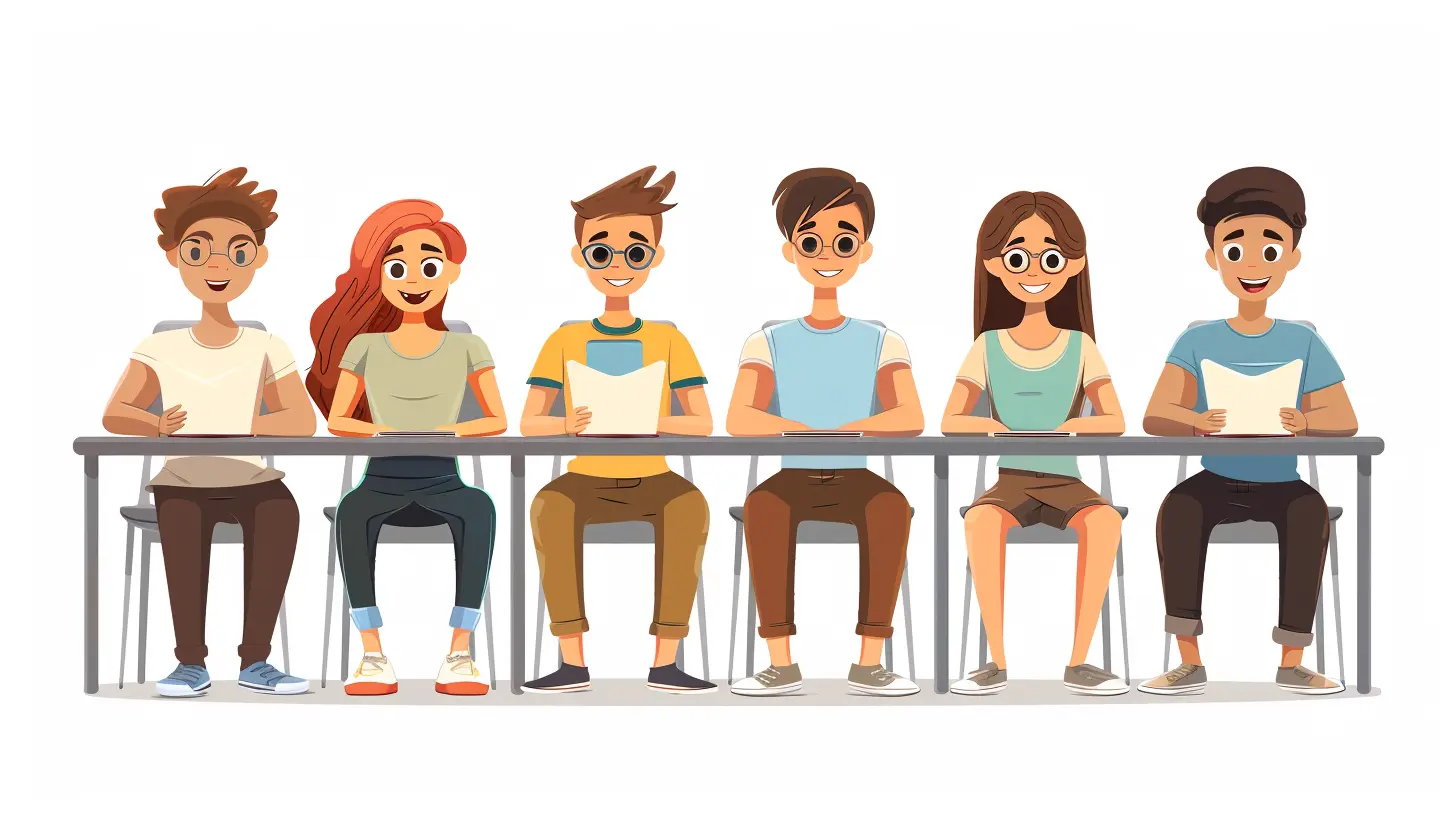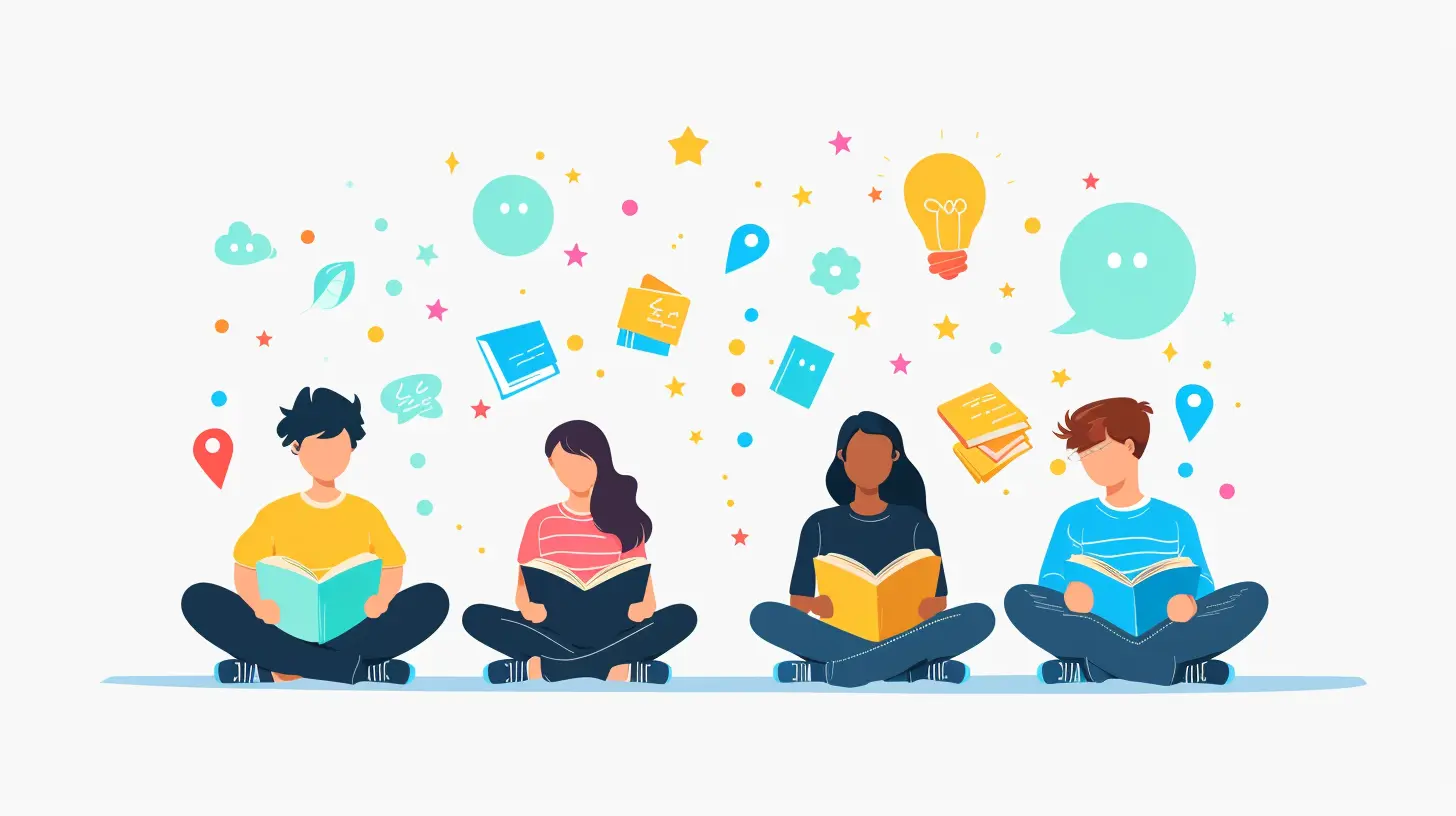How Peer Tutoring Promotes Social and Emotional Learning
2 September 2025
In today’s educational landscape, there's a lot of buzz around academic performance, standardized testing, and rigorous coursework. But what about the often overlooked yet equally important aspect of a student's development—social and emotional learning (SEL)? One powerful and often underutilized tool to foster SEL is peer tutoring. Yes, the simple act of students helping students. It's not only about improving academic skills but also about promoting better emotional and social growth.
In this article, we'll break down how peer tutoring promotes social and emotional learning and why it's one of the most effective strategies for developing well-rounded individuals. Ready to dive in? Let’s go!

What is Peer Tutoring?
Before we get into the nitty-gritty, let’s clarify what we mean by peer tutoring. Peer tutoring is a method of instruction where students help one another learn material, often with one student acting as the "tutor" and the other as the "tutee." It’s a form of cooperative learning where the tutor might be slightly older or more knowledgeable in a certain subject but still close enough in age and experience to relate to their peer.But here’s the kicker—peer tutoring isn’t just about improving academic performance. It’s a dynamic process that offers a wide range of social and emotional benefits for both tutors and tutees. And that’s what we’re going to explore!

What is Social and Emotional Learning (SEL)?
Before we connect the dots between peer tutoring and SEL, let's first define what SEL actually is. Social and Emotional Learning is the process through which individuals, both young and old, acquire the skills necessary to manage emotions, build strong relationships, and make responsible decisions.The five core competencies of SEL are:
1. Self-awareness – Understanding your emotions, strengths, and limitations.
2. Self-management – Managing your emotions and behaviors to achieve goals.
3. Social awareness – Showing empathy and understanding others’ perspectives.
4. Relationship skills – Building and maintaining healthy relationships.
5. Responsible decision-making – Making ethical and constructive choices about personal and social behavior.
Great, now that we’ve got that sorted, let's explore how peer tutoring can promote these skills!

How Peer Tutoring Encourages Social and Emotional Learning
1. Building Empathy and Social Awareness
One of the first SEL benefits that peer tutoring brings to the table is empathy. Let’s face it: It’s not always easy to put yourself in someone else’s shoes, especially when you’re a student focused on getting through your own academic struggles. But peer tutoring requires just that.When a tutor works with a peer who might be struggling in a subject they’ve already mastered, they begin to understand the frustrations and challenges faced by that student. It's not just about teaching the material; it's about connecting with the other person and offering support in a way that makes the learning process easier for them. That’s empathy in action.
Similarly, tutees also develop a sense of social awareness. They learn to appreciate the help they’re receiving and recognize that everyone has different strengths and weaknesses. This fosters a more inclusive and understanding classroom environment.
2. Improving Communication and Relationship Skills
You know what they say: communication is key. In peer tutoring, communication is at the heart of the learning process. Tutors need to clearly explain concepts, ask questions, and ensure that their tutees are keeping up. Likewise, tutees need to feel comfortable asking questions, seeking clarification, and engaging in discussion.This back-and-forth dialogue improves relationship skills on both sides. Tutors learn how to guide their peers without sounding condescending, and tutees learn how to express their needs without feeling embarrassed. These communication and interpersonal skills are critical for building and maintaining healthy relationships, both in school and beyond.
3. Boosting Self-Awareness and Confidence
For both the tutor and tutee, peer tutoring is an excellent way to boost self-awareness. Tutors often find themselves reflecting on their own knowledge and learning style as they teach. They begin to recognize their own strengths and areas for improvement, which can help them in future academic and personal endeavors.On the flip side, for the tutee, peer tutoring can be a huge confidence booster. Imagine struggling with a subject, only to have someone close to your age patiently explain it in a way that finally makes sense. That “aha!” moment can make students more self-aware of their abilities and motivate them to tackle more challenging tasks. It’s not just about solving a math problem—it’s about realizing, "Hey, I can do this!"
4. Encouraging Responsibility and Accountability
Peer tutoring also promotes a sense of responsibility and accountability. Tutors are often tasked with preparing lessons, managing time, and ensuring their tutees are making progress. This sense of responsibility helps tutors develop better organizational and leadership skills, as they know their peer is relying on them.For the tutees, having another student invest time and effort in their learning can create a sense of accountability. They don’t want to let their tutor down, which often leads to increased effort and focus. Both parties are held accountable, creating a mutually beneficial learning environment.
5. Fostering Emotional Support and Reducing Anxiety
Let’s be real—school can be stressful. Tests, assignments, and the pressure to perform can lead to anxiety for many students. Peer tutoring offers a space where students can feel emotionally supported by someone who “gets it.” A fellow student may have recently been in the same position, struggling with the same material, and can offer not just academic help but also emotional encouragement.This form of emotional support can significantly reduce anxiety. Tutors can share their own experiences of overcoming challenges, offering reassurance that it's okay to struggle. This kind of peer-to-peer encouragement can be more impactful than advice from a teacher or parent because it comes from someone who understands their current situation firsthand.
6. Promoting Growth Mindset and Resilience
Peer tutoring naturally cultivates a growth mindset—the belief that intelligence and abilities can be developed through dedication and hard work. When a student sees their peer improving through effort, it reinforces the idea that they, too, can improve. And let’s be honest, that’s a game-changer.Tutors also develop resilience as they face the challenge of teaching a peer. Sometimes, it’s not going to go perfectly. The tutee might not grasp a concept right away, and that’s okay. Tutors learn to adapt, try different approaches, and "bounce back" from setbacks. This resilience is a key component of both academic success and emotional well-being.

Real-Life Examples of Peer Tutoring in Action
To illustrate just how effective peer tutoring can be for social and emotional learning, let’s look at some real-life examples:- Buddy Systems in Elementary Schools: Many elementary schools establish buddy systems where older students tutor younger ones. Not only does this help academically, but it fosters a sense of community and belonging. Younger students feel supported, while older students develop leadership and empathy.
- Peer Mentoring Programs in High Schools: High schools often implement peer mentoring programs where upperclassmen help freshmen navigate both academic and social challenges. This type of peer tutoring is invaluable for fostering emotional connections and reducing the stress of transitioning to a new phase of life.
- Collaborative Learning in College: In many universities, peer tutoring is a staple of academic support services. But more than just academic help, it provides an opportunity for students to develop better collaboration and teamwork skills, which are essential for future careers.
How Schools Can Encourage Peer Tutoring for SEL
Schools play a crucial role in promoting peer tutoring as a tool for SEL. Here are a few ways schools can encourage this:1. Structured Programs: Establish peer tutoring programs with clear goals, training, and support for tutors. This will ensure that both academic and SEL outcomes are met.
2. Recognition and Rewards: Schools can provide recognition for students who engage in peer tutoring, such as certificates, awards, or extracurricular credits. This encourages participation and reinforces the importance of SEL skills.
3. Safe and Inclusive Environment: Ensure that peer tutoring programs are inclusive and create a safe environment where students feel comfortable engaging with their peers without fear of judgment.
4. Teacher Facilitation: Teachers can act as facilitators, providing resources and guidance to ensure that the tutoring sessions are productive and focused on both academic and emotional growth.
Conclusion: A Win-Win for Everyone
Peer tutoring is so much more than just a way to improve grades. It’s a powerful tool for promoting social and emotional learning. From building empathy and improving communication to boosting confidence and fostering resilience, peer tutoring offers a unique opportunity for students to grow academically, socially, and emotionally.So, the next time you think about tutoring, remember—it’s not just about mastering algebra or acing that history test. It's about developing life skills that will help students thrive in school and beyond. Peer tutoring is truly a win-win for everyone involved!
all images in this post were generated using AI tools
Category:
Peer TutoringAuthor:

Zoe McKay
Discussion
rate this article
1 comments
Kingston McTier
Peer tutoring fosters social and emotional learning by enhancing communication skills, building empathy, and promoting collaboration. This supportive environment empowers students to take ownership of their learning, ultimately boosting confidence and interpersonal relationships.
September 21, 2025 at 3:33 AM

Zoe McKay
Thank you for your insightful comment! I completely agree that peer tutoring not only enhances academic skills but also significantly contributes to social and emotional learning by fostering communication, empathy, and collaboration among students.


